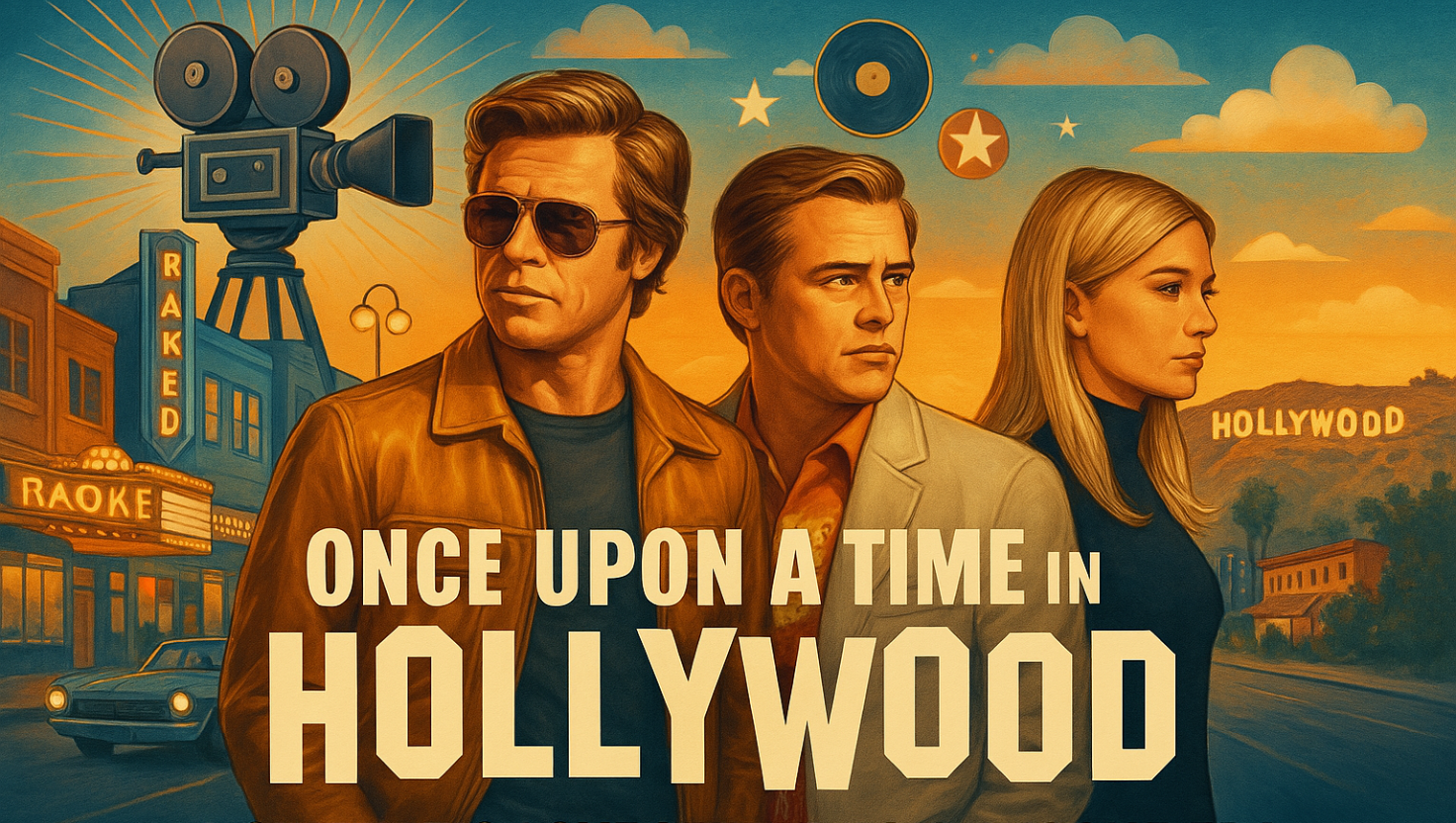Once Upon a Time in Hollywood: A Cinematic Love Letter to a Bygone Era
Quentin Tarantino's Once Upon a Time in Hollywood (2019) is a genre-bending, nostalgic masterpiece that celebrates the golden age of cinema. Featuring an all-star cast, an engaging storyline, and Tarantino's distinctive storytelling approach, the film whisks viewers away to 1969 Los Angeles, a city poised on the brink of change.
The Story and Characters
In essence, Once Upon a Time in Hollywood tracks declining television star Rick Dalton (Leonardo DiCaprio) and his affable stunt double, Cliff Booth (Brad Pitt). While Hollywood's movie landscape changes from the classic Westerns to the emergence of the counterculture, Rick tries to remain current in an industry that's abandoning him. Cliff, his dependable sidekick and veteran war hero, meanwhile negotiates his own tenuous future with easy aplomb.
Woven into this fictional narrative is the true story of Sharon Tate (Margot Robbie), the model and actress whose life was brutally cut short in the notorious Manson Family murders. Tarantino's film, though, takes artistic license, offering an alternate history that provides a revisionist interpretation of one of Hollywood's most sinister moments.
A Tribute to Classic Hollywood
One of the most engaging things about Once Upon a Time in Hollywood is its commitment to recreating the rich culture of 1960s Los Angeles. From neon-lit movie theaters to old cars driving down Sunset Boulevard, the film transports audiences to a world where old-school Hollywood glamour coexists with the gritty undertones of transformation.
Tarantino painstakingly nods to classic movies, television series, and historical personalities, marrying real historical events to fiction. The film is a feast of Easter eggs and therefore a heaven for cinephiles who are lovers of the time's rich cinema heritage.
Brad Pitt's Oscar-Winning Performance
Brad Pitt's Cliff Booth won him a Best Supporting Actor Academy Award, and it is well deserved. His laconic, nonchalant charisma, augmented by his subliminal strength, makes Cliff one of those great movie characters never to be forgotten. Pitt's and DiCaprio's rapport is spark-alive, delivering humor, added depth, and friendship to the film's anchor relationship.
The Alternate History Twist
Similar to Tarantino's Inglourious Basterds, Once Upon a Time in Hollywood redresses history both shockingly and gratifyingly. The climax darkens in a cathartic direction, defying expectations, and presenting a fictional revenge fantasy that is the antithesis of what really happened in August 1969. The daring narrative move enables Tarantino to steal back a tragedy and provide a kind of cinematic justice.
Conclusion: A Love Letter to an Era Lost in Time
With its outstanding performances, breathtaking cinematography, and soundtrack that captures the essence of the 60s to perfection, Once Upon a Time in Hollywood is a love letter to an era that has gone by. It is both a fairy tale and a poignant reminder of change, nostalgia, and the transience of fame.
For those who adore films about films, Tarantino's ninth is an absolute necessity—a movie that wallows in the glamour of Hollywood and pays homage to the inevitable decline of time.

